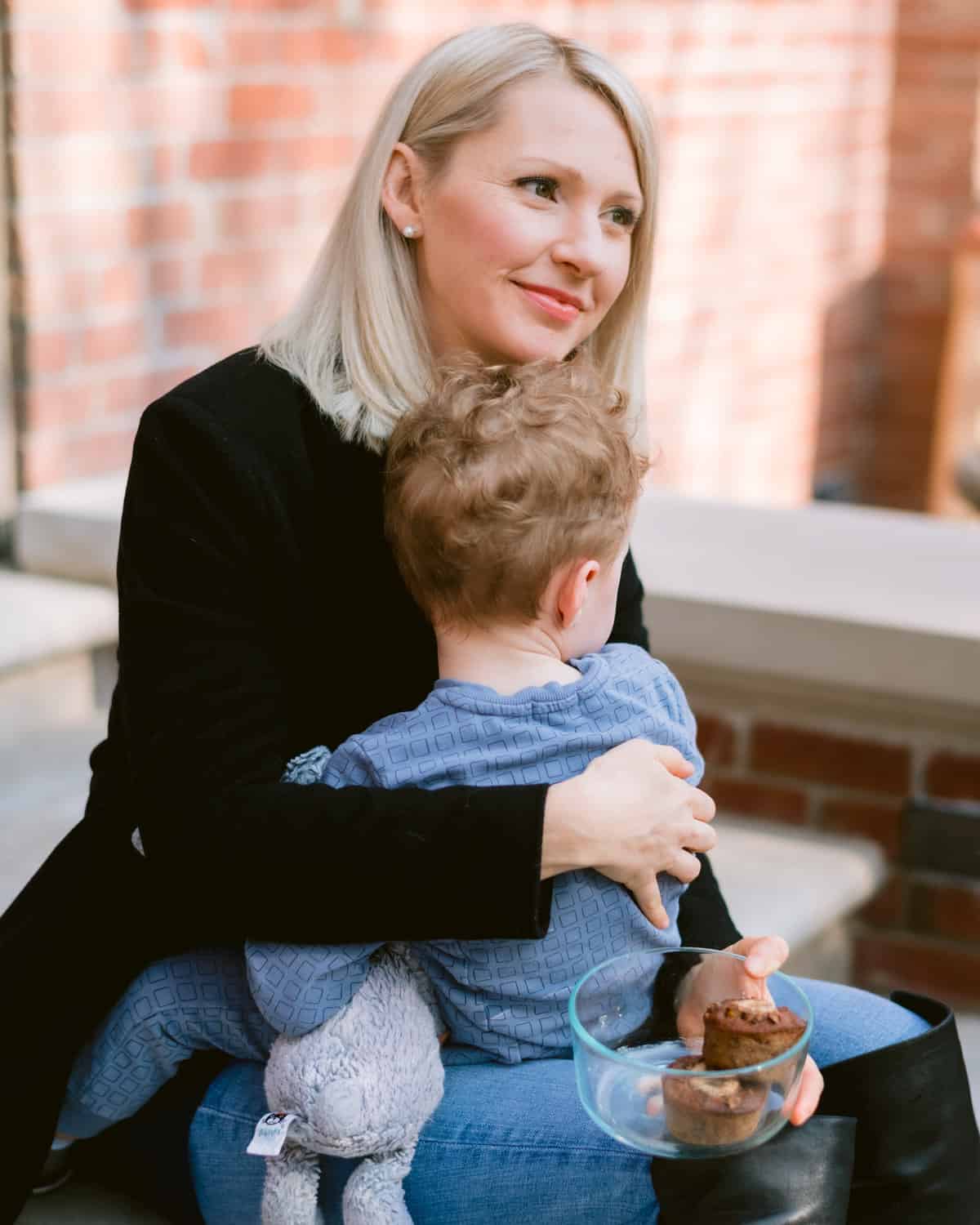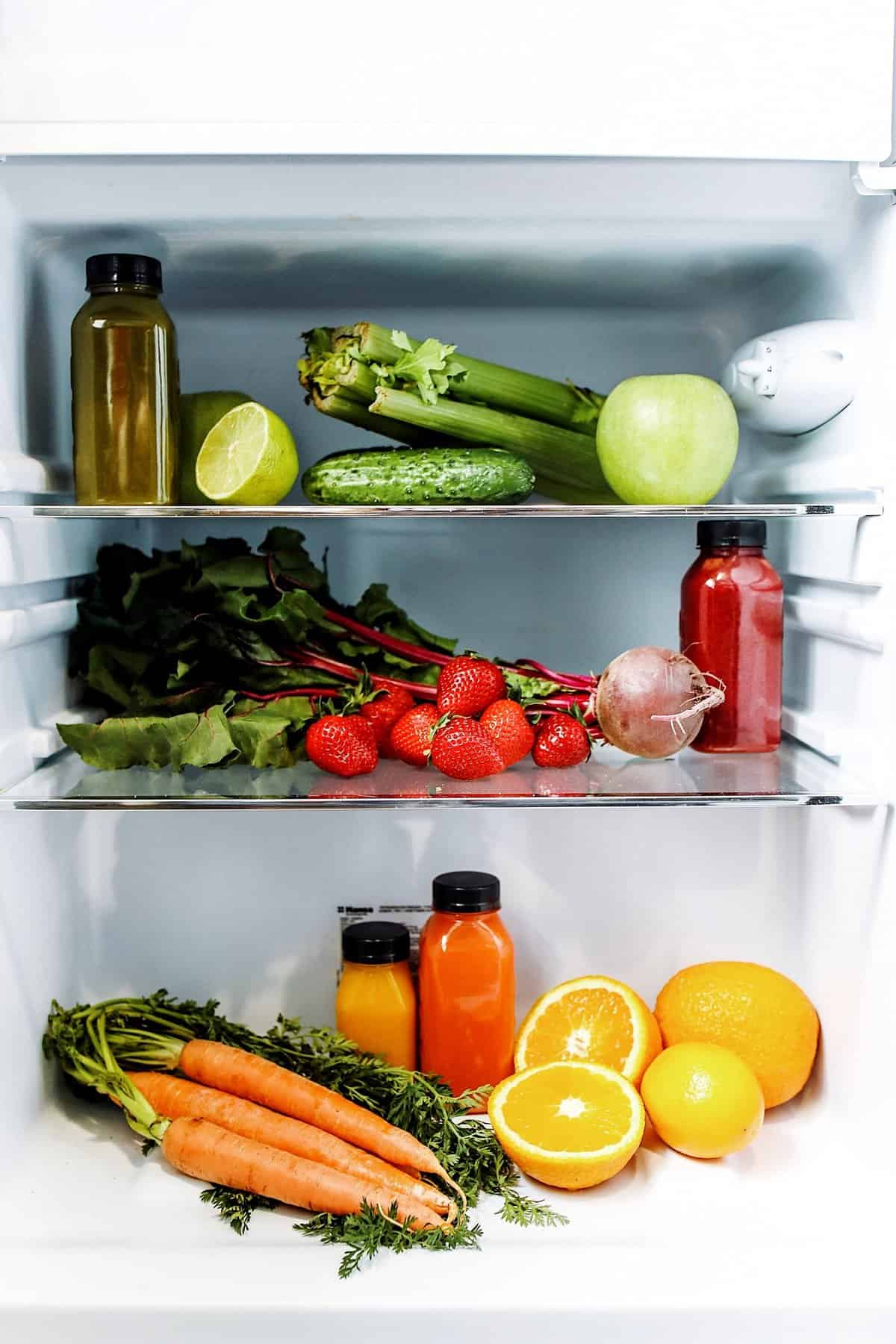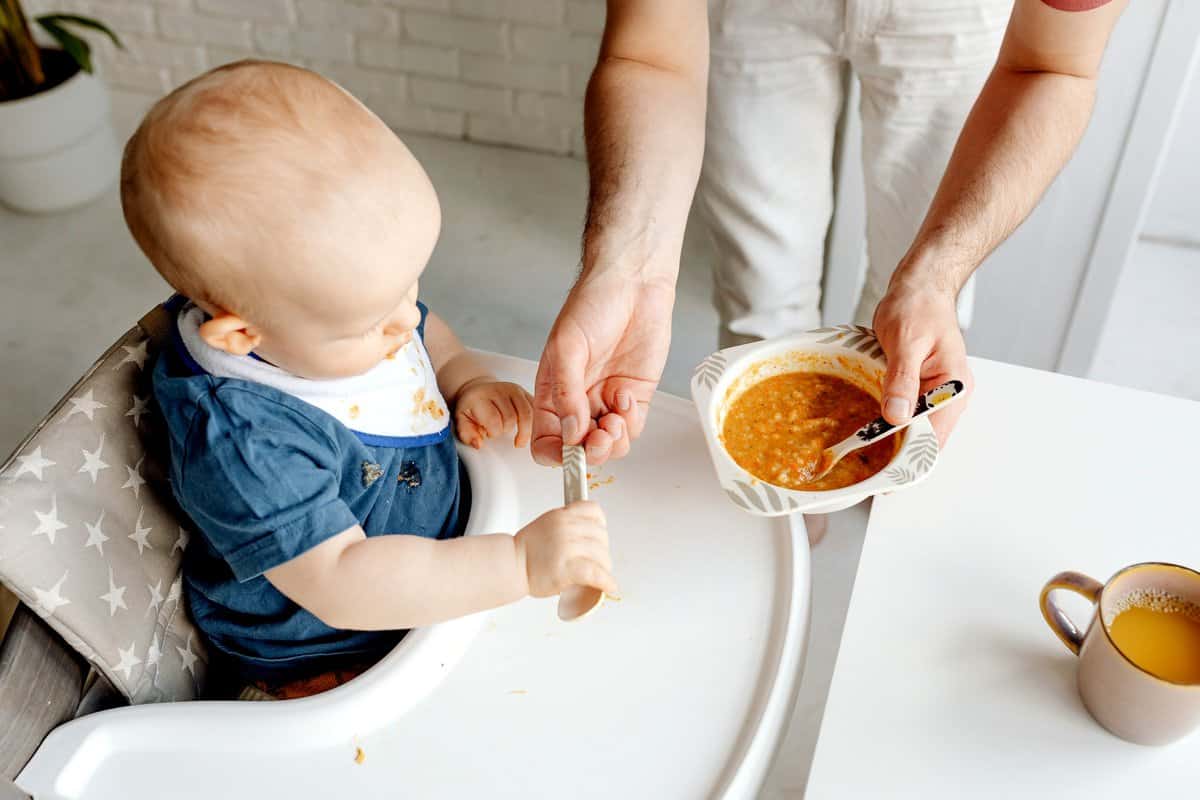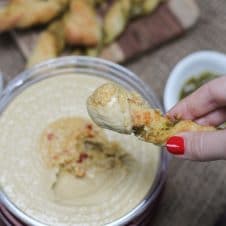Do almond moms cause eating disorders? Let’s unpack how generational dieting causes childhood food trauma.

From almond moms to ingredient-only households, the world is finally ready to unearth their childhood food trauma and the origins of their problematic relationship with food.
If you’ve been on TikTok at all, chances are you’ve heard about the infamous almond moms. This boomer parenting trope is basically THE mom that is obsessed with dieting in the pursuit of thinness, but often under the guise of “wellness”. The almond mom starter pack could include Weight Watchers, celery juice, and sugar free everything. She may or may not encourage you to honor your hunger with an almond. Okay, maybe not literally but you get the idea. Gigi Hadid core.
So today we’re going to unpack our food history together, explain why almond moms can be harmful, and give you better guidance on what to do if you’ve been a victim of childhood food trauma.
I also want to acknowledge that the development of disordered eating, eating disorders and overeating tendencies are highly complex and multifactorial. So I am by no means suggesting that these specific childhood experiences or a particular parenting style or parenting choice results in an eating disorder. I also don’t want to shame parents who have engaged in these behaviours- they likely are victims of diet culture themselves as we will soon learn.
“Healthy” Homes and Ingredient Households

Ingredient-only households are another big topic of conversation right now, which are basically homes that only buy ingredients to make specific meals. Aka, no prepackaged snacks, frozen meals, you name it.
In some cases, this may be rooted in true food insecurity, where parents are trying to make the most out of their grocery budget.
Now research has shown that food insecurity in childhood can increase the risk of disordered eating, especially related to food hoarding, bingeing and overeating, with one study suggesting that food insecurity increased the risk of binge eating by 40%. But I’m going to put that aside for now, because food insecurity isn’t a behaviour that we can necessarily choose or quickly change.
So lets talk about the other scenario, where adults create ingredient only households to limit their kids’ access to perceived “junk” foods.
Sure, in a perfect world where we have lots of time this might be a great way to reduce waste, packaging and “unhealthy” food. But what if you were hungry for a snack, only had 5 minutes, and everything in my house would require at least 30 minute prep time? I probably would skip the snack.
For a lot of us normal busy folks, convenient foods help us nourish our bodies with the fuel it needs. So if the covert INTENTION is to get our kids to eat LESS or to eat less of what we perceive to be “bad”, kids will figure this out. Food restriction, even outside the context of weight loss, as we so often see in wellness culture, can be incredibly damaging long term.
Whether we’re talking “unhealthy” boxed mac and cheese for the almond moms, or even “healthy” trail mix for our ingredient households, kids who grow up being told they cant have something because it’s “bad” are likely to become adults with problematic relationships with these forbidden foods.
Parental Weight Loss

But what about when the restriction is less sneaky? This would be your almond moms or parental role models embarking on an intentional weight loss journey with the kids watching on the sidelines.
For moms specifically, we know that maternal concerns about their body and weight is the third leading cause of body image problems among young children. One study found that pre-teens and teens who believed that weight and being thin was important to their moms were 2-3 times more likely to have significant weight concerns. Lots of other research confirms that children of moms who restrict food or calories are more likely to experience negative body image, poor self esteem, disordered eating, and become chronic dieters themselves.
It’s also worth noting that even if dieting mothers do not explicitly impose their lifestyle onto their children by restricting foods, even the act of just role modeling these behaviours can be damaging. So tell me if any of these ring a bell. Did your mom ever:
- Eat a different “diet” meal or avoid “unhealthy” meal components they served her husband and kids
- Express guilt over a food choice and proceed to order something low calorie
- Miss out on family time to exercise to make up for something she ate
- Casually criticize her own body
- Make critical comments or jokes about other peoples bodies
- Label certain foods as good and other foods as bad, even if just in the context of her own plate
Chances are, you’ve been exposed to behaviours and language just like this, and as an adult, you’ve also probably engaged in some of it yourself. No judgement- this way of talking about or thinking about food and our body is grossly engrained and even celebrated in our culture. But we are the most influential people in our kids lives, and they soak up what we do even if we try to keep it to ourselves.
So we know being on a diet and even participating in more covert forms of diet culture (aka wellness culture) can do harm. But you know what’s potentially even more risky?
Forcing our kids to participate in these behaviours in the explicit pursuit of childhood weight loss.
Risks of Kids and Weight Loss Diets

I’ve got a whole blog on teens and weight loss diets, so check that out for a complete rundown. But there is no question that weight stigma and dieting in childhood can have long-term health implications.
Research suggests that kids whose parents encouraged them to diet were more likely to encourage their own kids to do the same. It’s a generational cycle. But remember, when we know better we can do better.
We also know that research consistently shows that children put on diets are more likely to become overweight or obese as adults, AND are more likely to suffer lower self-esteem, body dissatisfaction, and depression. This can result in a hatred of health-promoting behaviours and foods, because of the deep seeded trauma they now associate with them.
Not to mention, children are in critical periods of development and need time to settle into their body’s natural set point. Dieting during these critical growth years can not only increase the risk of nutrient deficiencies, but it can also put young girls at risk of menstrual irregularity or amenorrhea, osteoporosis and iron deficiency anemia. This can all impact physical and cognitive growth and future learning outcomes.
Unfortunately, despite so much data demonstrating significant risks of putting kids on diets, the controversial new American Academy of Pediatrics statement on childhood obesity has made best practices difficult to establish. The new guidelines are recommending:
- Kids as young as 6 be treated with “intensive health behaviour and lifestyle treatment” to reduce their BMI
- Kids 12 and up to start weight loss drugs
- Kids 13 and older who are at or above the 120% of the 95th percentile be referred for weight loss surgery
Surgery, at 13, while their body is actively growing and changing!
Rightfully so, the medical community is outraged at these recommendations because they are focusing on treatment instead of health promotion, AND are known to do harm. In fact, they directly contradict the recommendations in their own guidelines for Preventing Obesity and Eating Disorders in Adolescents.
As a fellow parent, I get that ensuring our kids are healthy is our top priority. I also fully understand the importance of maintaining a healthy body weight, and I’m not denying the risks of obesity. But weight is not the ONLY indicator of good health, and we need to weigh the emotional and psychological toll of these suggestions as well. Plus as discussed previously, childhood restriction can actually increase the risk of adult obesity. That’s bit exactly a long-term “fix”.
Force Feeding and the Clean Plate Club

So we’ve talked mainly about restricting food in “overweight” children, but what about force feeding kids who are “underweight”?
If you were on the smaller side as a kid, you probably were forced to become part of the “clean plate club”. You know, the classic “kids are starving in Africa” guilt trip. I’m a dietitian mom and feeding my kids is probably the most frustrating part of my day, so I totally get the temptation to try every bribe, threat or game to get them to eat.
But we the longer term results of this strategy can include severe food aversions, negative associations and emotions towards food, and learning to override your innate body cues and intuition. One study found that 70% of the participants experienced forced food consumption in childhood, with 49% reporting that they would cry, 55% experiencing nausea, and 20% actually throwing up. 72% of them said they would never eat the forced food again.
Similarly, another experimental study found that children ate significantly more food when NOT pressured to eat, compared to children who were pressured to eat. So according to the Division of Responsibility (aka the evidence-based framework to raise competent eaters), our role as parents is to determine the what, where, and when of meal times. It’s the child’s responsibility to determine how much they eat of the food being served, or if they eat at all. No force-feeding, no pressure, no shaming, no catering. Just patience and strapping yourself in for the long game.
Taking to Kids About Weight
If there’s one thing the stereotypical almond moms do, it’s comment on their kids’ weight. Constantly.
This is a huge topic that requires another post, but I will just say that it should never be a discussion made directly with your child. If your kids’ pediatrician wants to talk about weight, ask them to do when your child is not in the room.
What if a diet is on the table, consider a weight neutral approach that will encourage health promoting behaviours without the shame, stigma or high risks of overt restriction. My Hunger Crushing Combo is a great place to start.
How to Break the Generational Cycle of Food Trauma

If you’ve read this nodding in acknowledgement of your own childhood eating experience, I want you to try to have some compassion for those who raised you. Generational diet culture runs deep, and almond moms were likely just using the tools they were given. But if you are finding yourself falling into some of those same patterns, here are some tips to break the cycle.
- Reach out for support. We absolutely do not have to do this alone. Working with a therapist or dietitian that practices from a weight inclusive approach can help us to unpack and unlearn these thoughts and behaviours before they’re passed down.
- Detox your newsfeed. In order to give up the diet mentality, we have to set boundaries around the information we consume. So don’t be afraid to mute, block, or unfollow content that is triggering and not supportive to your health and wellbeing
- Find a supportive community. Whether its online or in person, find a community of folks on a similar journey who embrace an inclusive approach to food and weight.
- Practice intuitive eating. Break free from the diet cycle and tune into your internal body wisdom by practicing intuitive eating principles. And if you don’t know where to get started, I have a whole YouTube series where I go through every principle in detail.
Again, disordered eating, overeating and eating disorders are highly complex and multifactorial, and this is certainly not an exhaustive list of the etiology. But my hope here is that with continued discourse around mental health and childhood experiences, we can collectively help each other unlearn, heal, and break the cycle for the generations to come.
More Blog Posts You Might Like
- Minding Your Business | Food Intolerances & Shaming of Others’ Food Choices
- Intuitive Eating Principles | How to Reject the Diet Mentality
- Body Shaming and Dinner Table Shaming (Best Tips to Combat)
- Why The WW Kurbo App for Kids Will Do More Harm than Good
What is your experience with almond moms? How has this impact your relationship with food? Let’s talk in the comments.
Updated on December 19th, 2023

Abbey Sharp is a Registered Dietitian (RD), regulated by the Ontario College of Dietitians. She is a mom, YouTuber, Blogger, award winning cookbook author, media coach specializing in food and nutrition influencers, and a frequent contributor to national publications like Healthline and on national broadcast TV shows.





Leave a Comment